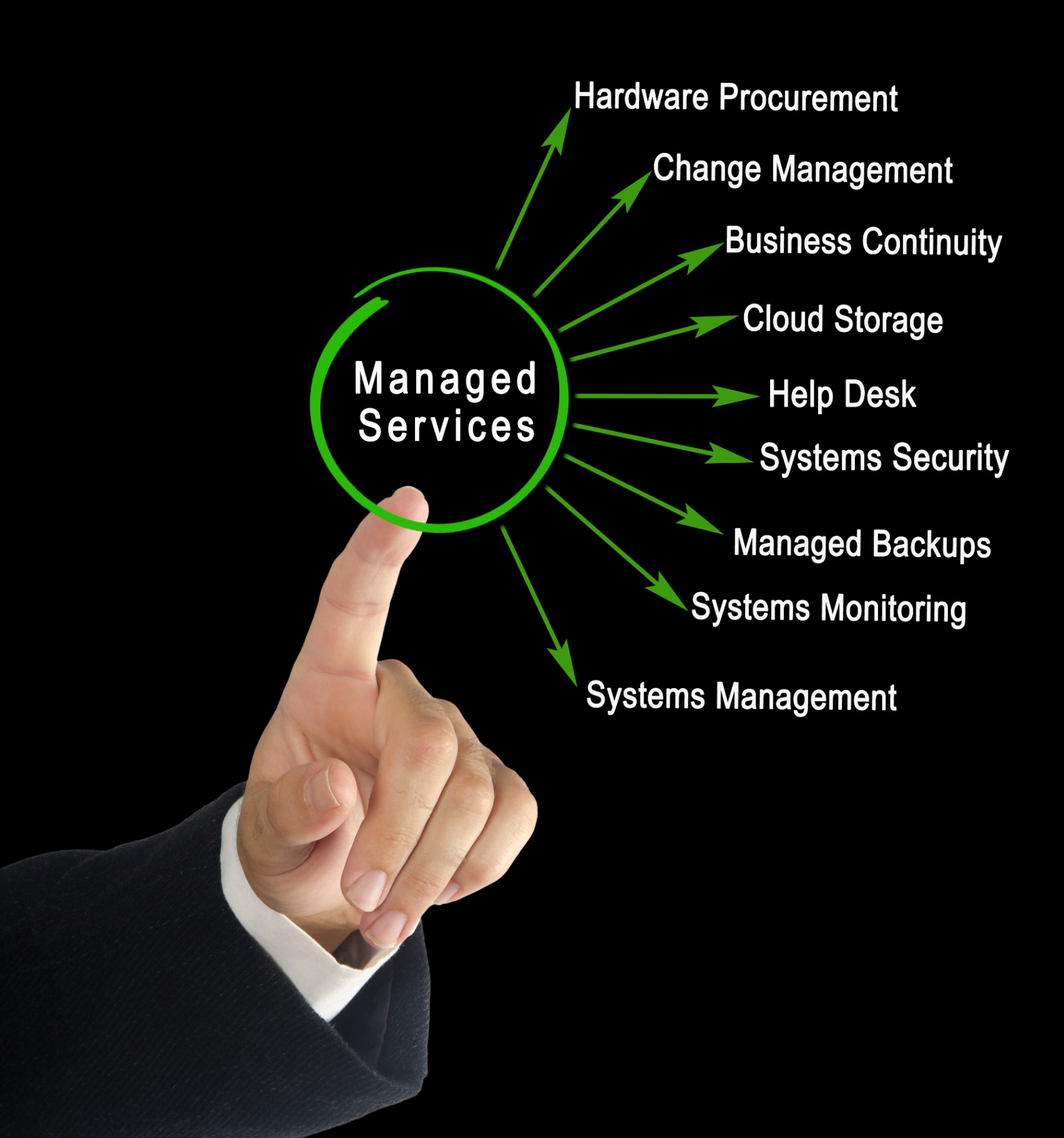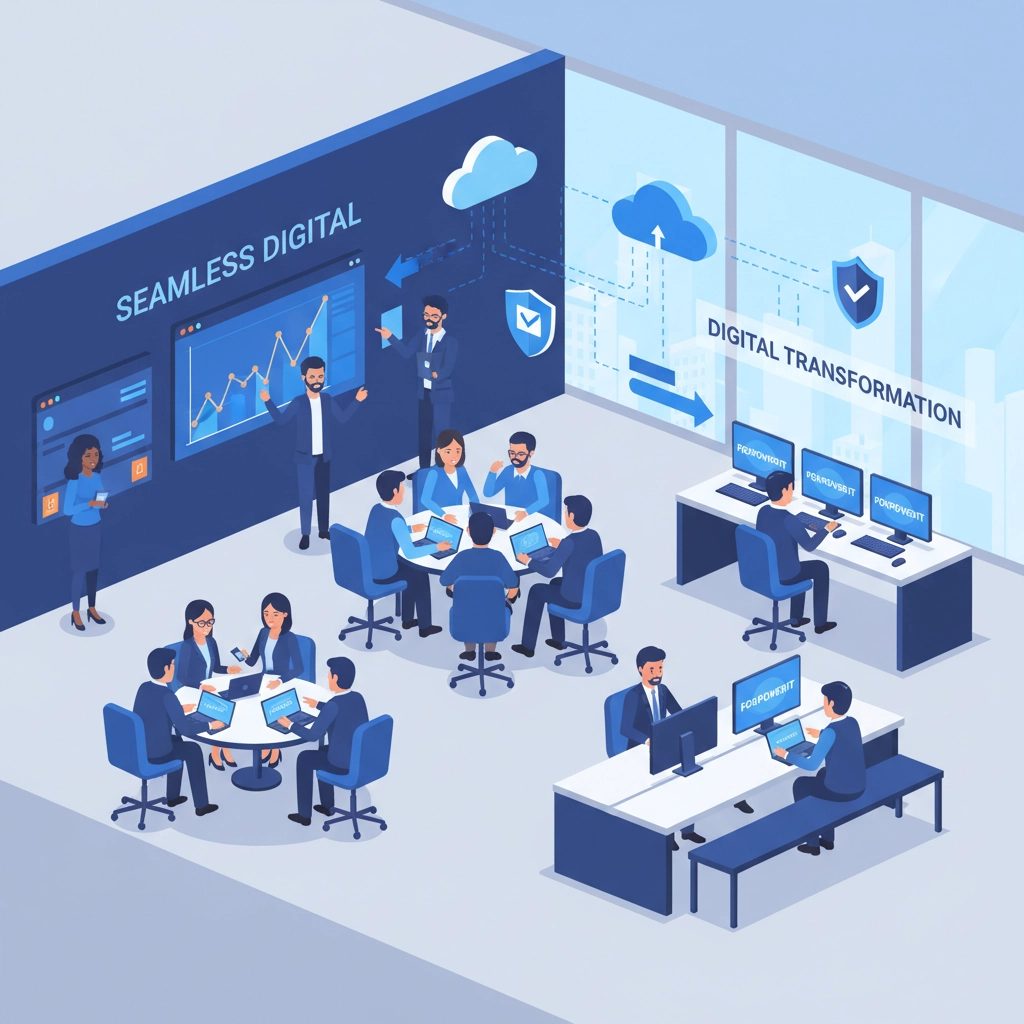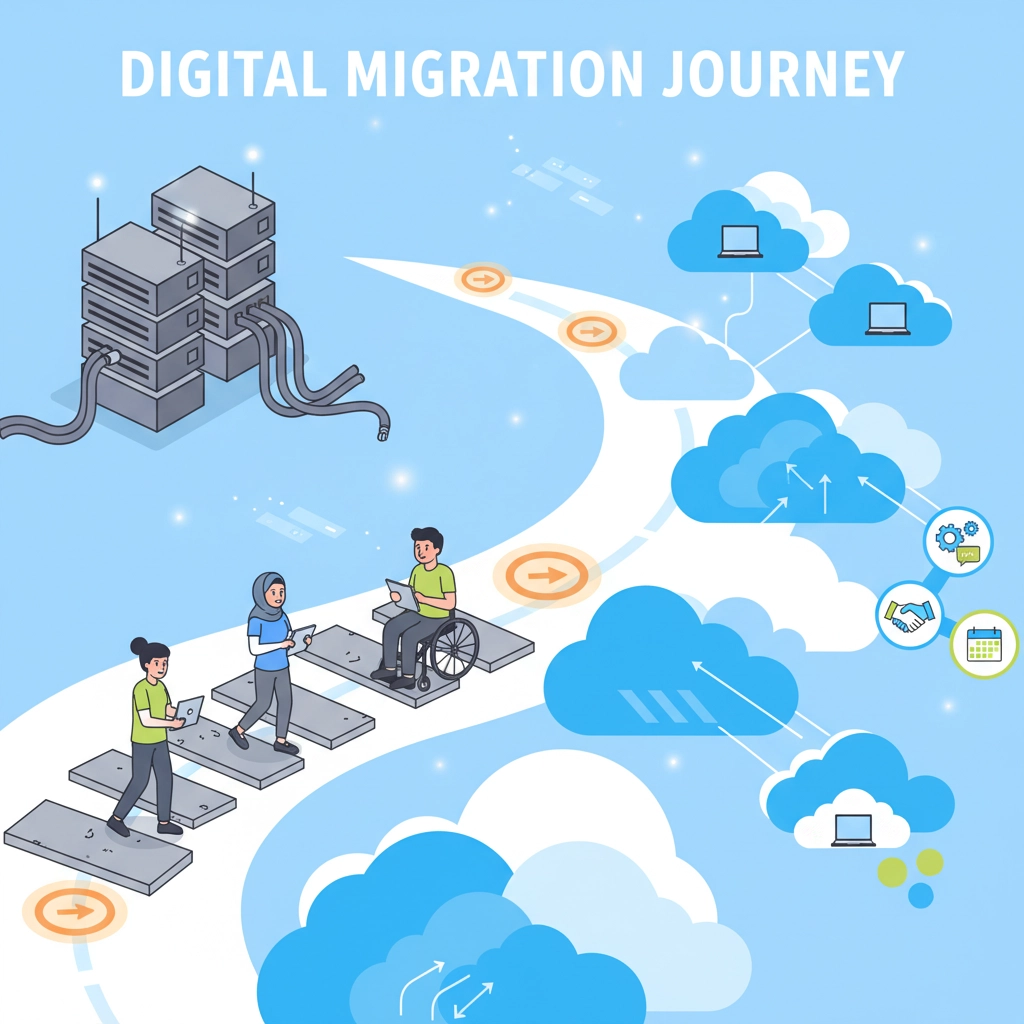Connecticut's nonprofit sector is thriving, with over 8,000 registered organizations serving communities from Hartford to New Haven. Yet many of these mission-driven organizations are stuck with outdated IT systems that drain resources, limit collaboration, and create security vulnerabilities. If your nonprofit is still relying on aging on-premises servers or patchwork software solutions, you're not alone: but you don't have to stay there.
Microsoft 365 migration represents one of the most impactful technology decisions a Connecticut nonprofit can make. When done right, it transforms how your team collaborates, protects sensitive donor information, and frees up budget dollars for your actual mission. The challenge? Migration can feel overwhelming, especially for organizations with limited IT resources and tight budgets.
Why Connecticut Nonprofits Are Making the Microsoft 365 Migration
The shift to cloud-based productivity platforms isn't just a tech trend: it's become essential for nonprofit sustainability. Connecticut organizations like food banks, community health centers, and social service agencies are discovering that Microsoft 365 offers something traditional software licensing never could: predictable costs, automatic updates, and enterprise-level security without enterprise-level complexity.
Consider the Connecticut Food Bank, which serves 400+ food pantries across the state. Organizations like this need seamless communication between headquarters, distribution centers, and partner agencies. With staff often working from multiple locations and volunteers accessing systems remotely, cloud-based collaboration isn't a luxury: it's operational necessity.
Microsoft offers significant nonprofit discounts, with eligible organizations receiving up to 75% off standard commercial pricing. For a 25-person nonprofit, this can mean accessing premium productivity tools for less than $100 per month: often cheaper than maintaining on-premises servers when you factor in hardware, maintenance, and security costs.

Understanding the Migration Landscape for Connecticut Nonprofits
The Microsoft 365 migration process varies significantly depending on your organization's starting point. Connecticut nonprofits typically fall into three categories:
Legacy On-Premises Organizations: These nonprofits built their IT infrastructure years ago around local servers, often running older versions of Exchange, SharePoint, or custom databases. They have the most complex migration needs but also the most to gain from modernization.
Google Workspace Users: Many nonprofits chose Google's free or discounted tools in earlier years. While Google Workspace serves basic needs, Microsoft 365 often provides more robust features for document management, advanced security, and integration with specialized nonprofit software.
Mixed Environment Organizations: The most common scenario we see involves nonprofits using a combination of tools: perhaps Gmail for email, Dropbox for file sharing, and various standalone applications for donor management, accounting, and project management.
Each migration path requires different strategies, timelines, and considerations. The key is developing a migration approach that minimizes disruption while maximizing the benefits of your new platform.
The Hidden Costs of Delayed Migration
Connecticut nonprofits often postpone IT modernization, viewing it as a luxury rather than necessity. However, delayed migration creates compound costs that can severely impact organizational effectiveness:
Security Vulnerabilities: Older systems lack modern security features, putting donor data and financial information at risk. With nonprofit cybersecurity incidents increasing 15% annually, the question isn't whether you'll face a security challenge: it's when.
Productivity Drain: Staff waste hours each week navigating disconnected systems, manually syncing information, and dealing with compatibility issues. For a nonprofit where every hour should advance your mission, this represents significant lost impact.
Maintenance Overhead: Aging servers require constant attention, unexpected repairs, and eventual replacement. These costs are unpredictable and often come at the worst possible times: right before your annual fundraising campaign or during grant application season.
Compliance Complications: Many Connecticut nonprofits handle sensitive information requiring HIPAA, FERPA, or other regulatory compliance. Legacy systems often lack the audit trails, encryption, and access controls needed for modern compliance requirements.
Microsoft 365 Migration: The Strategic Approach
Successful nonprofit migrations don't happen by accident: they require strategic planning that balances technical requirements with organizational realities. Here's how Connecticut nonprofits can approach their Microsoft 365 migration systematically:
Phase 1: Assessment and Planning
The foundation of any successful migration starts with understanding your current environment and defining clear objectives. This assessment phase typically takes 2-3 weeks for most nonprofits and involves several critical activities.
Current State Analysis: Document all existing systems, applications, and data repositories. Many nonprofits are surprised to discover how many different tools their team uses: from the official donor management system to the spreadsheet the volunteer coordinator maintains on their personal computer.
User Needs Assessment: Different roles within your nonprofit have different technology needs. Your development director needs robust email capabilities and donor data integration. Program managers need project collaboration tools. Board members need secure access to sensitive documents. Understanding these varied requirements ensures your Microsoft 365 configuration serves everyone effectively.
Data Inventory: Identify all data that needs migration, including email archives, shared documents, donor records, financial files, and program documentation. This inventory helps determine migration complexity and timeline requirements.
Compliance Requirements: Connecticut nonprofits often handle sensitive information requiring specific security and privacy protections. Document all applicable regulations and compliance requirements that your new Microsoft 365 environment must support.

Phase 2: Microsoft 365 Environment Configuration
Once you understand your current state and requirements, the next step involves setting up your Microsoft 365 environment properly. This configuration phase is critical: mistakes here create ongoing challenges that are difficult to correct later.
Tenant Setup: Establish your Microsoft 365 tenant with proper naming conventions, security policies, and administrative structures. For Connecticut nonprofits with multiple locations or programs, tenant organization becomes particularly important.
User Account Planning: Design user account structures that reflect your organizational hierarchy while supporting collaboration across departments. Consider how volunteers, board members, and seasonal staff will access the system.
Security Configuration: Implement multi-factor authentication, conditional access policies, and data loss prevention rules appropriate for your organization's risk profile and compliance requirements.
Integration Planning: Most nonprofits use specialized software for donor management, accounting, or program tracking. Plan how these systems will integrate with your new Microsoft 365 environment to avoid creating data silos.
Phase 3: Data Migration Execution
The actual data migration is often the most anxiety-inducing phase for nonprofit leaders. However, with proper planning and the right approach, this phase can proceed smoothly with minimal disruption to daily operations.
Email Migration: For organizations migrating from other email systems, this typically represents the largest data migration challenge. Microsoft provides native tools for migrating from Exchange, Gmail, and other common platforms. The key is staging the migration during low-activity periods and ensuring users understand the transition process.
File Migration: Documents, images, and other files need to migrate to SharePoint Online or OneDrive. This presents an opportunity to organize information more effectively and eliminate outdated or duplicate files that have accumulated over years.
Application Data: Specialized nonprofit software often contains the most critical organizational data. While this information may not migrate directly into Microsoft 365, ensuring it integrates properly with your new productivity platform is essential.
Historical Data: Many nonprofits have years of archived emails, documents, and records that don't need daily access but must remain accessible for compliance or historical purposes. Develop strategies for archiving this information cost-effectively.
Phase 4: User Training and Adoption
The most technically perfect migration fails if users don't adopt the new system effectively. Connecticut nonprofits face unique challenges here: limited training budgets, volunteers with varying technical skills, and staff who are already stretched thin with program responsibilities.
Phased Training Approach: Rather than overwhelming users with comprehensive training, focus on essential skills first. Start with email and basic file sharing, then gradually introduce more advanced collaboration features.
Role-Based Training: Different organizational roles need different Microsoft 365 skills. Administrative staff might need advanced Excel and SharePoint features, while program staff focus on Teams collaboration and mobile access capabilities.
Ongoing Support: Plan for ongoing support after the initial migration. Users will have questions, need refresher training, and require help as Microsoft adds new features. Building this support into your post-migration plan is crucial for long-term success.

Connecticut-Specific Migration Considerations
Connecticut's nonprofit ecosystem has unique characteristics that impact Microsoft 365 migration strategies. Understanding these local factors helps ensure your migration approach aligns with regional realities.
Regulatory Environment: Connecticut has specific data protection and privacy regulations that nonprofits must consider. The state's data breach notification laws require organizations to notify affected individuals within specific timeframes if personal information is compromised. Your Microsoft 365 configuration must support these compliance requirements.
Geographic Distribution: Many Connecticut nonprofits serve geographically dispersed communities, from urban centers like Hartford and New Haven to rural areas in Litchfield County. Microsoft 365's mobile capabilities and offline access features become particularly valuable for organizations with staff regularly traveling throughout the state.
Funding Landscape: Connecticut's nonprofit funding environment includes state grants, federal programs, and private foundations: each with different reporting and compliance requirements. Your Microsoft 365 environment should support these varied reporting needs while maintaining appropriate access controls for sensitive grant information.
Collaborative Networks: Connecticut nonprofits often work closely with state agencies, other nonprofits, and community partners. Microsoft 365's external sharing and collaboration capabilities need configuration that balances security with the collaborative nature of nonprofit work.
Overcoming Common Migration Challenges
Even with careful planning, nonprofit Microsoft 365 migrations face predictable challenges. Anticipating these issues and preparing solutions prevents minor problems from becoming major disruptions.
Budget Constraints: Nonprofits operate with limited budgets, making migration cost management critical. Microsoft's nonprofit pricing helps, but migration itself requires investment in planning, execution, and training. Consider phased approaches that spread costs over time while delivering immediate benefits.
Technical Expertise Gaps: Many nonprofits lack dedicated IT staff or work with limited technical resources. This makes partner selection crucial: you need migration support that provides expertise without creating long-term dependencies.
Change Resistance: Long-term staff members may resist new systems, particularly if previous technology changes created disruptions. Address this through clear communication about benefits, comprehensive training, and ongoing support during the transition period.
Data Complexity: Years of organizational growth often create complex data environments with inconsistent naming conventions, duplicate files, and unclear ownership. Use migration as an opportunity to implement better information management practices.
Timeline Pressures: Nonprofits often face seasonal activity patterns that impact when migrations can occur. Plan migration timing around fundraising campaigns, grant deadlines, and program cycles to minimize operational disruption.
Specialized Considerations for Different Nonprofit Types
Connecticut's diverse nonprofit sector includes organizations with unique technology needs that impact Microsoft 365 migration strategies.
Healthcare and Social Services Organizations: These nonprofits often handle protected health information requiring HIPAA compliance. Microsoft 365 supports HIPAA requirements through Business Associate Agreements and proper configuration, but migration planning must include specific security and audit capabilities.
Educational Organizations: Connecticut's nonprofit educational institutions, from private schools to community education programs, need robust collaboration tools for students, parents, and staff. Microsoft 365's education-specific features and compliance capabilities make it particularly suitable for these organizations.
Arts and Cultural Organizations: Museums, theaters, and cultural centers often have unique needs around digital asset management, public-facing content, and seasonal staffing patterns. Microsoft 365's SharePoint capabilities and external sharing features support these requirements effectively.
Faith-Based Organizations: Churches and religious nonprofits often balance transparency with privacy, need robust communication tools for congregation management, and operate with significant volunteer involvement. Microsoft 365's varied access levels and communication tools serve these needs well.
Post-Migration Optimization Strategies
Migration completion is just the beginning. The real value of Microsoft 365 emerges through ongoing optimization that aligns the platform with your organization's evolving needs.
Performance Monitoring: Track system usage, user satisfaction, and operational metrics to identify areas for improvement. Microsoft 365's built-in analytics provide insights into how your organization uses different features and where additional training might be beneficial.
Feature Rollout: Microsoft continuously adds new capabilities to the platform. Develop processes for evaluating and implementing new features that could benefit your organization while avoiding feature overload that confuses users.
Security Maintenance: Cyber threats evolve constantly, requiring ongoing attention to security configurations. Regular security reviews ensure your Microsoft 365 environment maintains appropriate protection as your organization and the threat landscape change.
Integration Optimization: As your nonprofit grows and adopts new specialized software, optimize integrations between Microsoft 365 and other systems to maintain operational efficiency.

The FoxPowerIT Advantage for Connecticut Nonprofits
Navigating Microsoft 365 migration requires expertise that many Connecticut nonprofits don't have internally. This is where partnering with experienced IT support for nonprofit organizations Connecticut makes the difference between migration success and frustration.
FoxPowerIT understands the unique challenges Connecticut nonprofits face. We've helped organizations throughout the state transition from aging systems to modern, cloud-based productivity platforms that support their missions more effectively.
Our Microsoft 365 migration services CT include comprehensive assessment, strategic planning, careful execution, and ongoing support designed specifically for nonprofit needs and budgets. We understand that your technology should advance your mission, not distract from it.
Local Expertise: Based in Connecticut, we understand the state's nonprofit landscape, regulatory environment, and collaborative networks. This local knowledge informs migration strategies that work for Connecticut organizations specifically.
Nonprofit Focus: We specialize in serving nonprofits and understand the unique balance between cost management and operational effectiveness that characterizes successful nonprofit technology implementations.
Comprehensive Approach: Our migrations include not just technical implementation but also user training, change management, and ongoing support that ensures long-term success.
Proven Track Record: We've successfully migrated Connecticut nonprofits of all sizes, from small community organizations to large multi-program agencies with complex technical requirements.
Making the Migration Decision
Microsoft 365 migration represents a significant decision for any Connecticut nonprofit. However, the risks of maintaining outdated systems often outweigh the challenges of migration, particularly when you have experienced support throughout the process.
The key is approaching migration strategically, with clear objectives, realistic timelines, and appropriate support. Done well, Microsoft 365 migration positions your nonprofit for improved collaboration, better security, and more efficient operations that directly support your mission.
Your organization exists to make a positive impact on Connecticut communities. Your technology should support that mission, not hinder it. Microsoft 365 migration, executed properly, transforms technology from an operational burden into a mission enabler.
Ready to explore how Microsoft 365 migration could benefit your Connecticut nonprofit? Contact FoxPowerIT today to discuss your organization's specific needs and learn how our specialized nonprofit migration services can ensure your transition is smooth, successful, and supportive of your ongoing mission.
The nonprofit sector drives positive change throughout Connecticut. Make sure your technology supports that vital work with a Microsoft 365 migration that's planned, executed, and supported by experts who understand nonprofit needs. Your mission deserves nothing less than technology that works as hard as you do for the communities you serve.

